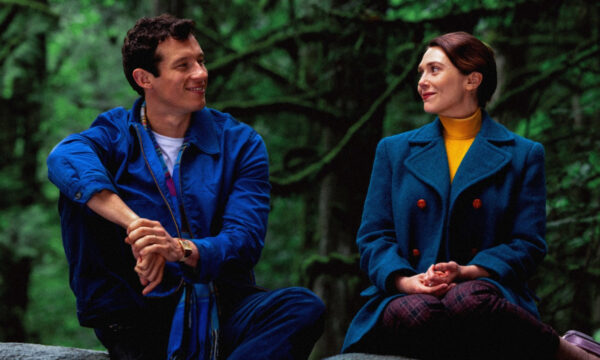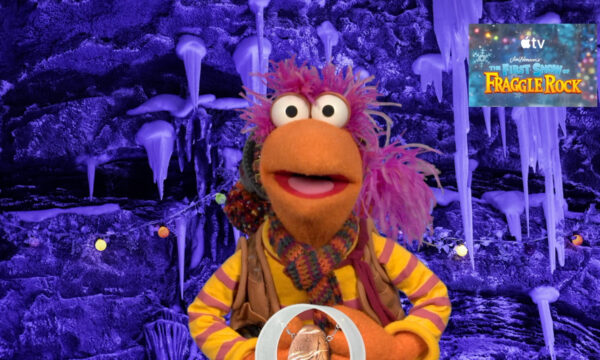Steven Spielberg, Meryl Streep and Tom Hanks discuss The Post at London press conference
Hot from the set of Ready Player One, Steven Spielberg couldn’t help himself from embarking on another project. The Post, starring Meryl Streep and Tom Hanks, tells the story of the Washington Post and their difficulties publishing the infamous Pentagon Papers in 1971 – revealing the government’s efforts to cover up controversial truths about the Vietnam war. Streep plays Katherine Graham, the first-ever female publisher to be appointed at the Post, who is constantly submerged in a forest of sexist men. Hanks plays Ben Bradlee, the strong and motivated Editor of the Post. Spielberg, Streep, and Hanks gathered for a press conference at the Claridge’s Hotel in London ahead of the film’s release on 19th January.
Steven – many films take many years to come to fruition and others fall into place much more quickly. Can you tell us which category The Post falls into?
Steven Spielberg: A lot of my movies take a long time to develop. I buy books, I develop scripts, years go by, I make other movies instead, it percolates, it comes back into my life, I finally get around to making them. And, in my entire span of 49 years professionally directing, I’ve never had a film come together this quickly.
Had the presidential election in 2016 gone in a different direction, would there still have been that impetus behind the film or are the issues bigger than one president?
SS: I think the issues are much bigger than one administration. Had the election gone a different way, I would’ve still found a real urge to tell the story. The first thing that attracted me to The Post was Katherine Graham, her story, her evolution as a real person of real potential power that did not have the facility to exercise that power. She hadn’t found that centre of gravity. She hadn’t been able to find how to use her own voice. So, before the obvious comparisons between 2017 and 1971, it was the Katherine Graham story and then eventually the Ben Bradlee-Katherine Graham relationship. That would’ve made a good movie at any time.
Meryl, it’s an astonishing performance as Katherine Graham – how much was your attraction to the story?
Meryl Streep: What was interesting about the screenplay was that it fell to a woman to hold the line for press freedom, at a time when women were excluded from any kind of leadership role in the press. There were no women reporters. Our friend Nora Ephron – to whom this film is dedicated – graduated from Wellesley [College, Boston], ran the paper there, and went to Newsweek to be a reporter. At that time, Katherine Graham owned Newsweek. The interviewer told [Ephron] she was very welcome – she was very welcome to be a researcher, a copygirl, or a secretary. But reporters were men. I look around this room and I see many, many women. You would not be here in 1971. It was a different world. So, this crucial decision to hold the line and to risk everything and to have that fall to a woman, who was really alone in her position, that’s what interested me.
I’m gonna ask whether you think we’ve reached a stage in the film industry where telling stories about women is a wonderful thing, as well as stories told by women.
MS: I think it’s important that the stories be told about women and that they be equal. Half the world is female, half the world is male. We have different tastes, we have different interests – sometimes they dovetail, sometimes they don’t. It just seems like the predominance of the offerings from Hollywood has been stories driven by men. If women were equally represented in the agencies, at the heads of studios, on the corporate boards that own the studios, it would be a different place.
SS: Many, many women directors – not enough of them – are telling significant stories and making a real place for themselves. The Handmaid’s Tale is one such example. So is the film Mudbound. Lady Bird. Wonder Woman. There is a new kind of story that’s being told.
Tom Hanks: I think you have to divide the industry into two distinct categories. Television kicks movies’ ass when it comes to diversity in the workplace – by way of skin colour, racial background, as well as the number of women who work in it. In television, which is probably better than it has ever been, women are much better represented in that medium than they are in motion pictures. I’ve worked with a lot of women. Penny Marshall, I made multiple movies with her. There was never any question of who was the boss on that film. The person in charge is the person in charge.
The Post feels like a film that has a huge affinity for journalism. Filmmakers and journalists aren’t always on the same side of things…
TH: As this room proves!
Do you feel an affinity with journalism at this moment in time?
MS: I have certainly been supportive of the committee to protect journalists. The organisations that do specifically protect journalists whose lives are in danger – all of whom are underpaid for the service they do to our nation. We all have to support them and to call out the attempts by powerful interests to control their work.
TH: I think on two phases you’re talking about the press as the institution, as the estate, that is required to exist in order for a free, democratic republic to be a free, democratic republic. Then you come down to the individuals who are inside that estate and Ben Bradlee was a man who loved his job. He would say things like “you’ve got a story, but you don’t have the story” – meaning let’s aim at the confirmable, almost empirical, truth. That code of ethics, that ethos, that discipline, that desire does come down to be an individual mandate that only the practitioner themselves can do.
Is The Post an optimistic film?
SS: The Post is a very optimistic picture because the outcome determined the future of the Washington Post. The outcome of this story allowed Ben Bradlee and Katherine Graham to pursue through the genius, investigative reporting of Carl Bernstein and Bob Woodward that eventually led to Richard Nixon’s resignation. One did lead to the other. Without the courage of Bradlee and Graham, there would not have been enough cajones combined with women’s intuition to allow the Washington Post to go after Richard Nixon. This is what allowed All the President’s Men to become made into a movie.
Euan Franklin
The Post is released nationwide on 19th January 2018.
























Facebook
Twitter
Instagram
YouTube
RSS